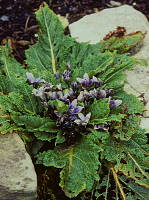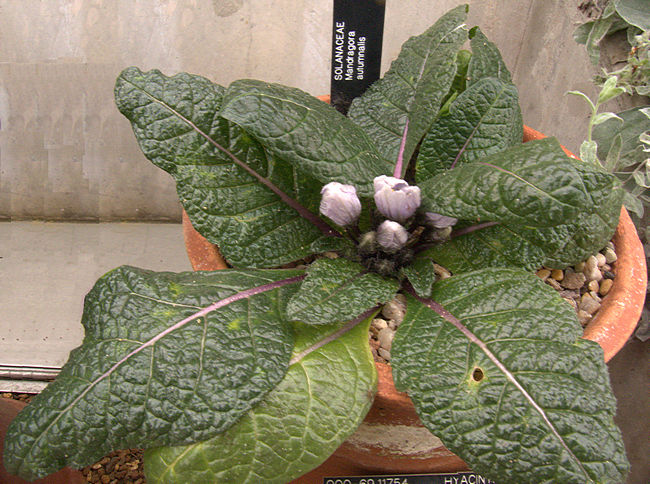
Mandrago officinorum

Mandrago autumnalisThe Solanales is a widely distributed order of 5 families and over 4200 species of dicotyledenous flowering plants taking its name from the Solanaceae (nightshade family, 2600 species) and also including the Convolvulaceae (Morning Glories, 1650 species).
Family Solanaceae includes herbs, shrubs, trees and vines, with branched hairs, often spines and commonly containing alkaloids. Although many Solanaceae contain deadly alkaloid poisons such as atropine, the family also includes many agriculturally-important crops with edible parts (aubergine, potato, sweet pepper, tomato). Tiny doses of some of the alkaloids found in the Solanaceae are used medicinally and had traditional ceremonial uses:
Datura species contain alkaloids that were used by native Americans in religous ceremonies.
Mandragora officinarum (Mandrake) has a fleshy root that was used to relieve pain in e.g. childbirth.
Nicotiana (Tobacco) species are cultivated specifically for their toxic nicotine content.
Solanum (Nightshade) toxins are said to have featured in European witchcraft.
The Family Convolvulaceae includes herbs, woody shrubs and climbers, some of which are noxious weeds.
Within the Convolvulaceae, the largest genus Ipomoea (500 species) includes species with succulent tubers of horticultural merit and of interest to the collector. The sweet potato I. batatas tuber is an important crop in many tropical countries.
Cuscuta (Dodder) are parasites of other plants including cacti.
|

 Families of Succulent Plants
Families of Succulent Plants 





